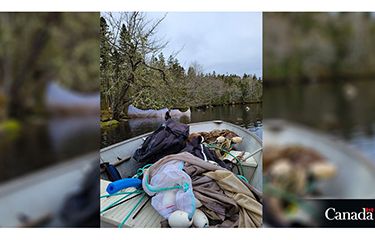The elver fishery in the U.S. state of Maine is nearing its close date on 7 June, after another high-value year. But the Canadian provinces of New Brunswick and Nova Scotia continue to struggle with rampant poaching of the baby eels, which are typically caught in river mouths and then sent to Japan for fattening.
Maine’s elver fishery has become increasingly important economically to the state, worth USD 20.1 million (EUR 18.7 million) in 2022, making it the second most-valuable fishery in Maine behind lobster.
This year, the fishery had an available quota of 9,619.29 pounds, divided between commercial fishery and four tribal groups – the Maliseet, Micmac, Passamaquoddy, and Penobscot. The final update from Maine Department of Marine Resources on the season, posted 2 May, indicated that 9.498.269 pounds had been caught so far, and a spokesperson for the department said that there had been little activity since then.
While the data is still preliminary, based on dealer reports, fishermen got an average price per pound of USD 2,031 (EUR 1,892), and the fishery reached a total value of USD 19,289,800 (EUR 17,971,586).
“It’s been another lucrative season for Maine elver harvesters,” Maine DMR spokesperson Jeff Nichols told SeafoodSource.
Despite previous scandals, this year, Maine managed to avoid the controversy that plagued the elver fishery in the Canadian provinces of New Brunswick and Nova Scotia, which the Canada Department of Fisheries and Oceans shut down after extensive poaching led to “conservation and safety concerns.”
"We were enforcing the elver fishery. It just got out of hand, partly because of the ease of fishing and the value of the catch," Canada Minister of Fisheries and Oceans Joyce Murray told the CBC.
The DFO seized CAD 500,000 (USD 367,000, EUR 342,000 worth of allegedly smuggled elvers outside of Halifax, Nova Scotia, on 8 May. Between 15 April, when the fishery was closed, and 5 May, fishery officers made 53 arrests and seized around 123 kilograms of elvers, 28 dip-nets, 46 fyke nets, four vehicles, a trailer, more than CAD 15,000 (USD 11,000, EUR 10,000) in cash used in allegedly illegal elver fishing.
On 29 May, the DFO posted another update, stating that the elver fishery would remain closed for another 45 days due to “conservation and safety concerns.”
DFO said since the initial closure and “extensive enforcement and monitoring activities,” fishery officers have made 110 arrests along with the seizure of more gear.
“All elver harvesting remains prohibited and subject to enforcement action,” the DFO said. “Fishery officers will continue to monitor and disrupt unauthorized elver harvesting, purchase, sale, and export, in partnership with other law enforcement agencies.”
Photo courtesy of the Canada Department of Fisheries and Oceans







